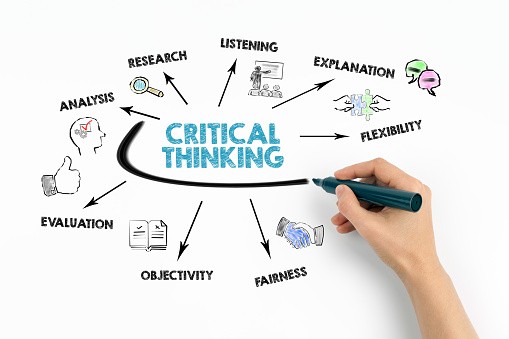Prof. Sam Lehman-Wilzig: Israel’s Real Long-Term Threat (Not What You Think)
These days Israelis are naturally focusing on their current existential crisis with the country’s “neighbors” near (Hamas) and far (Iran/Houtis). Unfortunately, that prevents us from seeing the real future, existential threat to Israel: Artificial Intelligence.
Nope, I’m not talking the screaming headlines regarding AI “Taking Over the World!” (as some prognosticators would have you believe). The chances of AI becoming truly “conscious” with its own “drive” and self-interest are close to zero. The real threat is far more subtle, striking particularly hard at what makes Israel great.
First, some well-known background: throughout modern history, the Jewish People have stood out for their intellectual firepower. One example among many: with only 0.25% (a quarter of one percent) of the world’s population, Jews have garnered 18% of all the science Nobel Prizes – that’s 72 times their global proportion! The Jewish Talmud – a huge compendium of acutely argued discussions over several centuries – is the most outstanding source among many others displaying such cognitive abilities.
Therefore, it’s not surprising that on the world stage “tiny Israel” punches way above its puny population numbers – scientifically, technologically, economically, politically, and even culturally (e.g., 4 Eurovision victories). Brainpower is the key to success – individual and national – in our contemporary “Information Age.”
And this is where Artificial Intelligence (AI) enters the picture. As a researcher of AI (back in 1981 I published the first ever academic article on the legal aspects of AI), I am keenly aware of its potential (and already real) benefits. But as a professor of college students, I also clearly see the inherent “intellectual” problem: the more students rely on AI, the less they’re learning/training to do actual thinking by (and for) themselves. Imagine someone telling you that s/he’s exercising their muscles by sending their personal robot to the physical fitness gym to lift weights for them! Patently absurd. But there’s no difference between “exercising” one’s body muscles and brain muscles; in both cases, it’s a case of “use it or lose it.”
Indeed, recent neurological research has shown this happening within the brain. Students were split into three groups: 1) on a given topic, writing an essay all by themselves; 2) using Google Search to find sources and then writing that essay; 3) providing their AI with instructions to write an essay on the same subject. The results: far more brain connections were added in the first group than in the third (the second was in the middle). Moreover, the third (AI-written) group had trouble recalling almost anything in “their” essay whereas the first group was able to recollect almost everything those students wrote by themselves.
What happens when using AI becomes the standard tool for getting through college (or even high school)? The answer (you don’t need an AI for this): the dumbing down of society. That might not be a tragedy for a country’s workforce that relies on muscle power (agriculture or factory work). But for an economy that relies mostly on brainpower, it could be potentially devastating economically – ergo, the dire threat to Israel’s future economic success.
Universities around the world are breaking their head to adapt to this new situation. The professors and administrative staff understand full well the danger lurking in student overuse of AI in their studies (note the similarity in these two words). Unfortunately, the students are far less aware of such cognitive harm. My personal “mantra” to my students has always run along these lines: “WHAT you study is far less important than HOW you study it. College is your personal Olympics: “No Pain, No Gain.”
Critical and creative thinking is what students should be doing; not memorizing facts. That was true “back then”; it’s far more germane today in the Age of AI where our intellectual tool does that kind of “source work” much better than any human being is capable of. Humans, however, do better than AI in developing creative questions to ask the AI to answer; to think about whether (and to what extent) the AI’s results make sense; and how the AI’s results can be applied in the real world (AI’s Achilles Heel: it doesn’t “live” in the physical world; its “knowledge” is completely based on the internet’s vast textual world).
What’s a professor to do with students? For that matter, what’s a hiring manager to ask entry job candidates? Forget about grades based on fact regurgitation. Instead, we should all switch our perspective to testing critical/creative thinking, perhaps even without numerical grades but rather through qualitative evaluations.
For Israel’s continued technological-scientific-economic success, it won’t be enough to stay in place intellectually. After all, with the rest of the world adopting AI, other nations will constitute a greater competitive threat in the future (unless they too “dumb down” their own workforce). Once again, we will have to use our considerable brainpower to find the way to stay ahead of the pack: AI and humans together.









